What could we do with $74B taken from the Pentagon’s budget? Photo used with permission from the National Priorities Project at the Institute for Policy Studies.
By Cherrill Spencer, Coordinator of Resource Preparation Team for the Call for Peace Campaign
Nancy Price, Team Member
March 2021
WILPF US is continuing our Call for Peace Campaign which you can read about in this President’s Corner from October 1, 2020. It has two demands: to the United Nations Security Council to extend the current global ceasefire and to the US Congress to cut all military spending by 50% and move the money to fund human needs.
Three related action-oriented themes have been chosen for WILPFers to work on; the first was to celebrate the Entry into Force (EIF) of the new Treaty on the Prohibition of Nuclear Weapons (TPNW), which WILPFers did with great gusto on January 22 (as reported in the Februrary eNews). The other two are to get Congress to Move the Money from the military budget to programs that help US residents, and to advocate for the continuation of the UN Secretary General’s call for a global ceasefire.
Actions to Take Now to Get the Money Moving!
Please take some simple actions today as part of the Move the Money to Human Needs Campaign.
Number one is calling your congressional representative: We invite you to take some simple steps now because already the House Armed Services Committee of this new 117th Congress is quietly at work on the National Defense Authorization Act for the 2022 Fiscal Year Pentagon budget (the 2022 Federal fiscal year starts on October 1st 2021).
Just as quietly, corporate lobbyists from the weapons industries are hard at work trying to influence the Armed Services Committee members to support increased spending, especially on the big-ticket weapons of war, and to make sure the nuclear “modernization” program that includes nuclear weapon systems remains on track, while many, including President Biden, want to review and possibly cut this program. (Read "The U.S. Doesn't Need New Missiles in the Ground" by the Bloomberg Editorial Board.)
 Significantly, White House Press Secretary Jen Psaki reported on February 16 that the release of the Biden Fiscal Year 2022 Budget would be delayed perhaps into April or May, thus postponing the timetable for consideration of the annual National Defense Authorization Act Bill and the Defense and Energy and Water appropriation bills.
Significantly, White House Press Secretary Jen Psaki reported on February 16 that the release of the Biden Fiscal Year 2022 Budget would be delayed perhaps into April or May, thus postponing the timetable for consideration of the annual National Defense Authorization Act Bill and the Defense and Energy and Water appropriation bills.
Above: Graphic representation of cutting the Pentagon budget. Used courtesy of Pax Christi.
Thus, it is important to contact your Representative now as described in Move the Money Actions to Take Today. We need to support those who on July 21, 2020 voted for the 10% cut in the NDAA budget and, most urgently, to help build membership in the new House Defense Spending Reduction Caucus announced by Reps. Mark Pocan and Barbara Lee on July 28, 2020. Even if your representative is a Republican, all of whom voted NO against the 10% cut, it is important to make a call.
Join the Grassroots Local Resolution Movement to Move the Money!
You could begin now to discuss whether your local branch would consider planning a local Move the Money to Human Needs campaign to get your city council to pass a resolution about reducing the bloated Pentagon budget. If you are a member of the Jane Addams branch, you can also think of what organizations and friends to work with. At this point, it’s certainly possible through phone calls, emails, and virtual meet-ups to begin a discussion about organizing in your community.
There is a wealth of materials at https://moneyforhumanneeds.org where you can first read about the campaign. Then click on Get Involved for the “ABCs of Getting a Local Campaign Started” and the “Experience of New Haven, Connecticut” where in November 2020, 83% of those voting endorsed the resolution in the form of a referendum. Be sure to look at the Fact Sheets and at Downloads you can find sample resolutions.
It’s time for WILPF to add to this list of ongoing and past campaigns: Presently, there is a resolution before the New York City Council promoted by Move the Money NYC, and resolution efforts are underway in Denver and Boulder, CO, Los Angeles, CA, Pittsburgh, PA, and Baltimore, MD.
In November 2020, Connecticut passed a public referendum, and Milwaukee, WI, passed one in 2019, and Nevada City, CA, in 2018. In 2017, the U.S. Conference of Mayors passed the “Opposition to Military Spending Resolution” at their 85th Annual Meeting, and some resolutions were passed in Charlottesville, VA, Montgomery County, MD, Evanston, IL, New London, NH, Ithaca, NY, West Hollywood, CA, Wilmington, DE, and by the California Democratic Party.
So, it’s time to begin to add to the 2021 list and grow this grassroots resolution movement! If you wish more information, please call or email Nancy Price in Davis, CA, member of the Move the Money for Human Needs Coordinating Committee, to discuss how to proceed: nancytprice39[at]gmail[dot]com or 530-758-0726 – in Pacific Time.
More Resource Guides Coming
More resource guides are being prepared to provide you with hard data about the US Military Budget and what monies removed from it would be better spent on.
We have a team of volunteers researching and writing resource guides to inform and encourage WILPF members to take action on our Call for Peace themes from several points of view. For example, our Middle East Peace and Justice Action Committee is preparing a guide that describes US Military expenditures in the Middle East region, shows the awful destruction caused by these weapons, and lists what these dollars could accomplish if redirected toward constructive rather than destructive purposes. This will be Call for Peace guide #5 and it will also describe how you can work to accomplish this goal of moving this money.
Our Earth Democracy committee is looking into moving money from the so-called Defense budget to actions that help combat climate change and environmental degradation (this will be Call for Peace guide #7). The Poor People’s Campaign has a detailed moral budget with 14 demands of the Biden administration to move money from the military budget into projects that will help our much-too-numerous poor population. Our resource guide #9 will include steps to transform our national defense from domination to true defense and give examples of programs that will help poor women and children.
These three new guides and several more will be distributed via emails to your branch contacts and liaisons during March, so give them a nudge if you have not received any new Call for Peace resource guides by the 25th of March!
Give yourself a pat on the back if you’ve read to the bottom of this eNews article, since we know not many do, and let’s get going on moving billions of dollars out of the US military budget and into programs that serve people rather than the already-too-rich weapons manufacturers.

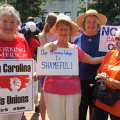

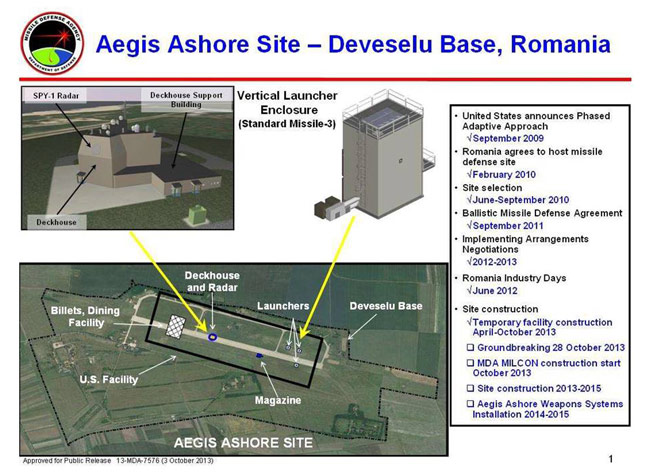
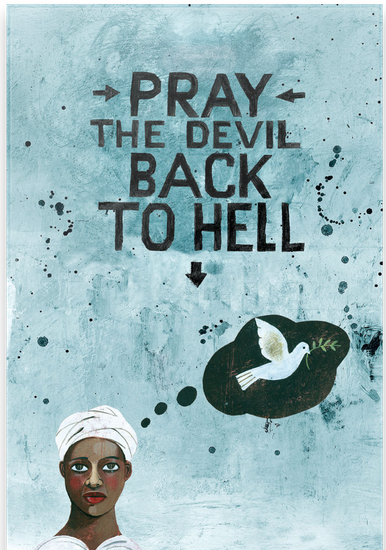 WILPF Pittsburgh hosted a rich discussion after a showing of Pray the Devil Back to Hell, a documentary directed by Gini Reticker. The film follows Leymah Gbowee, Asatu Bah Kenneth, and Vaiba Flomo as they lead other Liberian women and their supporters in a grassroots peace movement to end the long civil war in their country. The online showing enabled a small group of women from California, Canada, the UK, and of course Pittsburgh, to share ideas about their successes and tactics and ways those could apply to current work being undertaken.
WILPF Pittsburgh hosted a rich discussion after a showing of Pray the Devil Back to Hell, a documentary directed by Gini Reticker. The film follows Leymah Gbowee, Asatu Bah Kenneth, and Vaiba Flomo as they lead other Liberian women and their supporters in a grassroots peace movement to end the long civil war in their country. The online showing enabled a small group of women from California, Canada, the UK, and of course Pittsburgh, to share ideas about their successes and tactics and ways those could apply to current work being undertaken.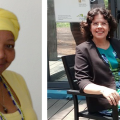
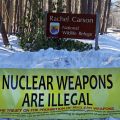
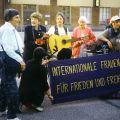
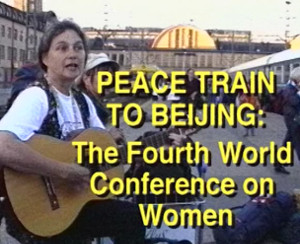 Our panel presentation takes place on Thursday, March 18, at 11:30 am PST/2:30 pm EST. It is about the WILPF International Peace Train (from Helsinki to Beijing), an amazing initiative 26 years ago. The special Peace Train to the Beijing 4th World Conference for Women in 1995 was a landmark experience for 230 women and 10 men, who came from 42 countries and who crossed two continents to reach the Beijing Conference.
Our panel presentation takes place on Thursday, March 18, at 11:30 am PST/2:30 pm EST. It is about the WILPF International Peace Train (from Helsinki to Beijing), an amazing initiative 26 years ago. The special Peace Train to the Beijing 4th World Conference for Women in 1995 was a landmark experience for 230 women and 10 men, who came from 42 countries and who crossed two continents to reach the Beijing Conference.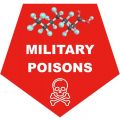
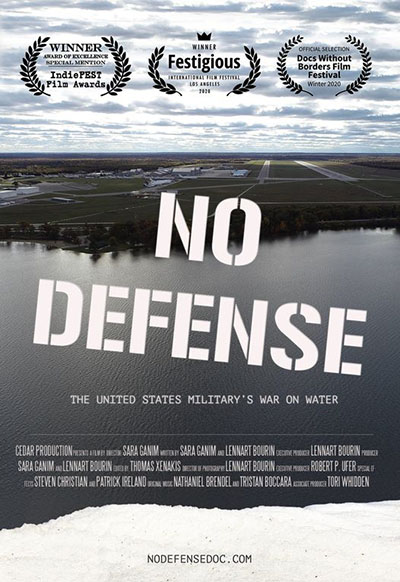 On Monday, April 22—Earth Day—we will be showing the award-winning documentary film No Defense and holding a discussion after the one-hour film. The Vermont International Film Festival will be hosting this free film showing. The time is yet to be determined. The documentary by Pulitzer Prize-winning journalist Sara Ganim focuses on PFAS contamination at the former Wurtsmith Air Force Base in Oscoda, Michigan.
On Monday, April 22—Earth Day—we will be showing the award-winning documentary film No Defense and holding a discussion after the one-hour film. The Vermont International Film Festival will be hosting this free film showing. The time is yet to be determined. The documentary by Pulitzer Prize-winning journalist Sara Ganim focuses on PFAS contamination at the former Wurtsmith Air Force Base in Oscoda, Michigan. across the country, contaminating surface water and drinking water. A discussion will be held following the film, including WILPF US experts Pat Elder, Patricia Hynes, and others.
across the country, contaminating surface water and drinking water. A discussion will be held following the film, including WILPF US experts Pat Elder, Patricia Hynes, and others.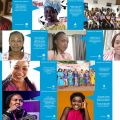


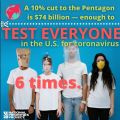
 Significantly, White House Press Secretary Jen Psaki reported on February 16 that the release of the Biden Fiscal Year 2022 Budget would be delayed perhaps into April or May, thus postponing the timetable for consideration of the annual National Defense Authorization Act Bill and the Defense and Energy and Water appropriation bills.
Significantly, White House Press Secretary Jen Psaki reported on February 16 that the release of the Biden Fiscal Year 2022 Budget would be delayed perhaps into April or May, thus postponing the timetable for consideration of the annual National Defense Authorization Act Bill and the Defense and Energy and Water appropriation bills.

